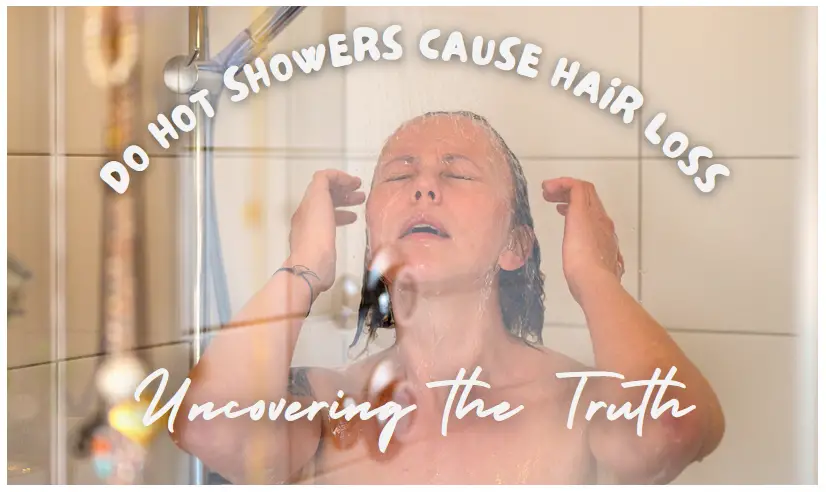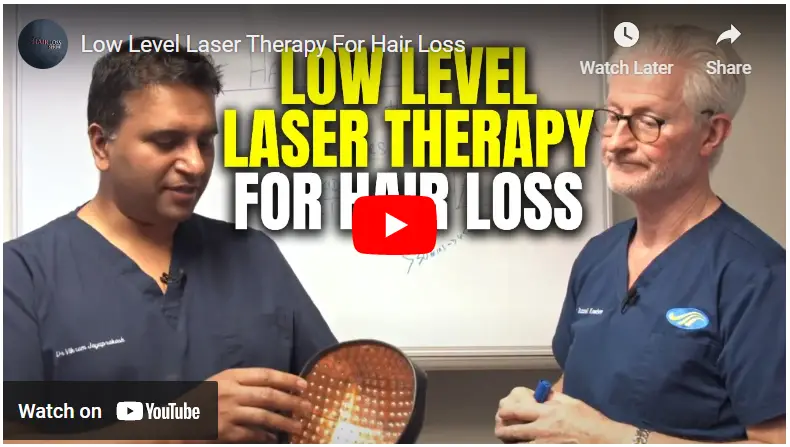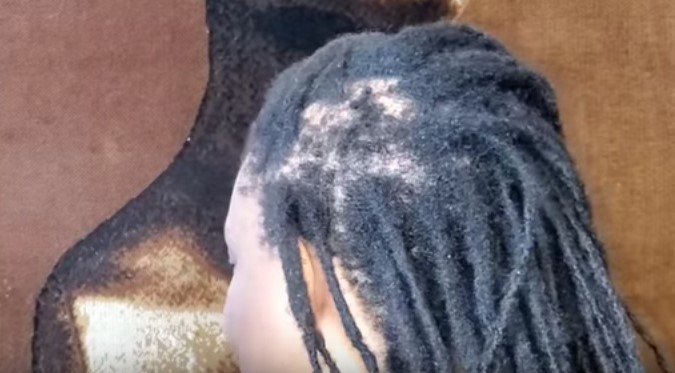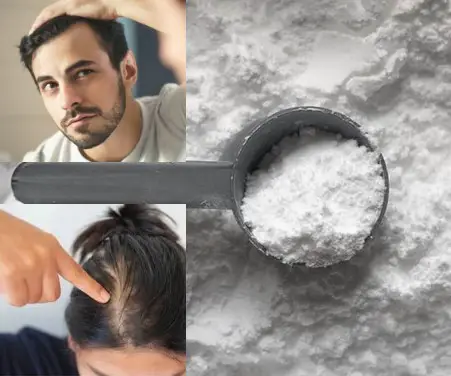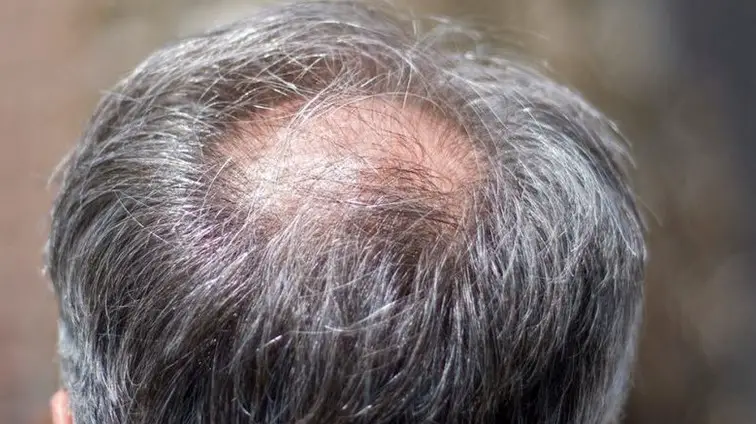For many, the allure of a hot shower at the end of a long day is undeniable. It’s a sanctuary where worries are washed away, and relaxation reigns. However, beneath this comforting ritual lies a debate that has piqued the curiosity of hair care enthusiasts and experts alike: the impact of hot showers on hair health.
Common beliefs sway between two extremes – some swear by the rejuvenating power of hot water, while others caution against its potential harm to our tresses. This introduction delves into the heart of this debate, unravelling the myths and facts surrounding hot showers and their effect on hair health.
In exploring this topic, we’ll consider various perspectives, from dermatologists to hair stylists, and examine scientific evidence to provide a well-rounded view. The goal is not just to answer the question, “Are hot showers bad for your hair?” but to offer insights that empower readers with knowledge to make informed decisions about their hair care routine.
Key Takeaways
- Hot Showers and Hair Health: Excessively hot showers can strip hair of natural oils, leading to dryness and potential damage. Moderation in water temperature is key.
- Impact on Hair Cuticles and Scalp: Hot water can weaken hair cuticles and irritate the scalp, affecting hair strength and growth.
- Myth vs. Fact: While hot showers don’t directly cause hair loss, they can contribute to conditions that may exacerbate hair thinning.
- Shower Temperature Balance: Alternating between warm and cool water during showers can help maintain hair health, closing cuticles and enhancing shine.
- Protective Hair Care: Using the right hair care products and techniques can minimize the adverse effects of hot showers on hair.
As we embark on this journey, it’s essential to remember that hair health is influenced by a myriad of factors, from genetics to environmental elements. The role of shower temperature, particularly the use of hot water, is a piece of a larger puzzle in understanding the complex world of hair care. So, let’s dive into this warm and steamy topic, and uncover whether the comfort of a hot shower comes at the cost of our hair’s well-being.
Do Hot Showers Cause Hair Loss?
Warm water is kind to your hair, but be cautious with hot water! It doesn’t directly lead to hair loss, but it can impact your scalp’s health and your hair’s condition. Using hot water might leave your hair feeling a bit dry and brittle, making it more likely to break. So, for happy hair, maybe keep the temperature just a notch cooler!
The Science Behind Hot Showers and Hair Health
Embarking on a journey to understand the science behind hot showers and their impact on hair health, we delve into the intricate relationship between hot water, hair cuticles, and the scalp. It’s a tale of temperature and texture, where heat plays a pivotal role in determining the health and vitality of our hair.
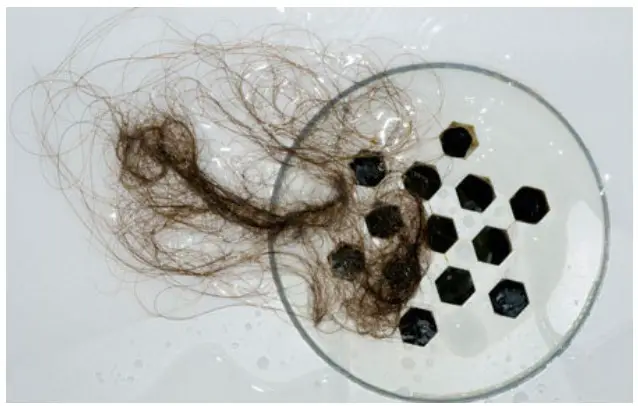
How Hot Water Affects Hair Cuticles and Scalp
Hot water, often a soothing escape, can be a double-edged sword for hair health. When it cascades over the scalp, it opens up the hair cuticles – the outermost layer of the hair shaft. This process, while beneficial for removing dirt and oil, can also leave hair vulnerable:
- Stripping Natural Oils: Hot water can strip away the natural oils that coat hair strands, leading to dryness and brittleness.
- Cuticle Damage: Prolonged exposure to hot water can cause the cuticles to remain open, making hair more susceptible to damage and breakage.
The scalp, too, reacts to the warmth of the water. While it can aid in cleansing the scalp, excessive heat can lead to dryness and irritation, disrupting the delicate balance of the scalp’s ecosystem.
The Role of Temperature in Hair Strength and Growth
Temperature regulation is crucial for maintaining hair strength and promoting growth. The ideal shower temperature for hair health is a balancing act – warm enough to cleanse effectively but not so hot as to cause damage. Here’s how temperature plays a role:
- Optimal Growth Conditions: Warm water can stimulate blood flow to the scalp, promoting hair growth. However, too hot temperatures can have the opposite effect, potentially slowing down hair growth.
- Maintaining Moisture Balance: A moderate temperature helps maintain the natural moisture of the hair and scalp, essential for strong, resilient hair.
Understanding these dynamics is key to optimizing our shower habits for hair health. It’s not just about the temperature but how we use it to our advantage. For more insights on maintaining a healthy scalp and strong hair, explore our detailed guide on Causes of Balding.
Understanding Hair Cuticles and Scalp Health
In the realm of hair care, understanding the structure of hair and the health of the scalp is paramount. The hair cuticle, the outermost layer of the hair shaft, plays a crucial role in protecting the hair. These cuticles are like shingles on a roof, overlapping layers that shield the inner layers of the hair from damage and retain moisture. When exposed to hot water, these cuticles open up, which can be both beneficial and detrimental:
- Beneficial for Cleansing: Open cuticles allow for deeper cleansing, removing buildup from the scalp and hair.
- Risk of Damage: However, frequent exposure to hot water can leave these cuticles open, making hair more prone to dryness and breakage.
The scalp, akin to the soil that nourishes a plant, is vital for healthy hair growth. It’s home to hair follicles, which are responsible for growing and maintaining the hair. Hot water can impact scalp health in several ways:
- Stimulating Blood Flow: Warmth can increase blood circulation, potentially promoting hair growth.
- Risk of Dryness and Irritation: Excessive heat can strip the scalp of its natural oils, leading to dryness and irritation.
To maintain optimal scalp health and protect hair cuticles, it’s essential to balance the temperature during showers and incorporate nourishing hair care routines. For more in-depth guidance on nurturing your scalp and hair, consider exploring Does Hot Water Kill Hair Follicles?, a comprehensive resource on our website.
Debunking Myths: Hot Showers and Hair Loss
In the quest to maintain healthy hair, many have stumbled upon the debate surrounding hot showers and hair loss. Myths abound, but what does science say? This section aims to separate fact from fiction, providing a clear understanding of how hot showers impact hair health.
Analysis of Myths vs. Scientific Facts
Myths about hot showers causing hair loss have circulated for years, often causing unnecessary alarm. Let’s examine these claims:
- Myth: Hot Showers Lead to Hair Loss: A common belief is that hot showers cause significant hair loss. However, this is a misconception. While extreme heat can damage hair, normal hot showers are unlikely to cause hair to fall out.
- Fact: Heat Can Weaken Hair: Scientifically, excessive heat can weaken hair strands, making them more prone to breakage. This is not the same as causing hair loss from the roots but can affect the overall appearance and health of hair.
Expert Opinions on Hot Water and Hair Loss
Experts in dermatology and trichology (the study of hair and scalp health) offer insights:
- Moderation is Key: Most experts agree that moderation in water temperature is crucial. Extremely hot water can strip the hair of natural oils, leading to dry, brittle strands.
- No Direct Link to Hair Loss: There is no direct evidence that hot showers cause hair to fall out from the roots. Hair loss is typically related to genetic factors, hormonal changes, or certain medical conditions.
For those concerned about hair health, it’s important to focus on a holistic approach to hair care, including proper nutrition, gentle hair care practices, and avoiding excessive heat. To delve deeper into maintaining healthy hair, readers are encouraged to explore Signs of Hard Water on Hair, which offers valuable insights into how water quality affects hair health.
Can Hot Showers Cause Hair Loss?
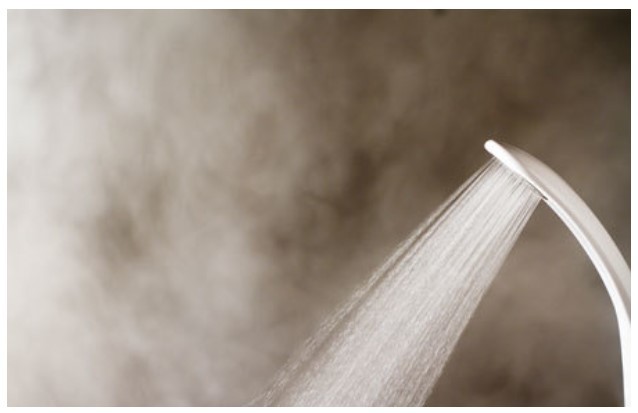
The question, “Can hot showers cause hair loss?” is one that resonates with many who are vigilant about their hair health. To address this concern, it’s essential to investigate the link between hot showers and hair loss, delving into the nuances of how shower temperature affects hair.
Investigating the Link Between Hot Showers and Hair Loss
The relationship between hot showers and hair loss is not as straightforward as it might seem. Here are some key considerations:
- Heat and Hair Stress: Prolonged exposure to high temperatures can stress hair strands. While this doesn’t directly cause hair loss, it can lead to hair breakage, which might be mistaken for hair loss.
- Scalp Health: Hot water can potentially irritate the scalp, leading to dryness and flakiness. A healthy scalp is crucial for healthy hair growth, so maintaining scalp health is key.
Insights from Dermatological Studies
Dermatological studies provide valuable insights into this topic. Research indicates that while hot showers can affect hair condition, they are not a primary cause of hair loss. Factors such as genetics, hormonal imbalances, and certain health conditions play a more significant role in hair loss. However, maintaining a healthy scalp environment is essential for preventing unnecessary hair stress and promoting overall hair health.
For those seeking more in-depth information on hair loss causes and prevention, a visit to Causes of Balding offers comprehensive insights and expert advice.
The Right Way to Shower for Optimal Hair Health
| Water Temperature | Effect on Hair Cuticles | Scalp Impact | Overall Hair Health |
|---|---|---|---|
| Cold Water | Closes cuticles, promoting shine and smoothness | Less irritating, can improve blood circulation | Encourages strength and vitality |
| Lukewarm Water | Gentle on hair, doesn’t strip natural oils | Soothing, maintains natural scalp balance | Ideal for regular washing, maintains health |
| Hot Water | Opens cuticles, can lead to moisture loss | Can be irritating and drying | May weaken hair, leading to potential damage |
When it comes to maintaining the health of your hair, the way you shower can make a significant difference. It’s not just about choosing the right shampoo or conditioner; the temperature of the water and the duration of your shower are equally crucial.
Best Practices for Hair-Friendly Showering:
- Start with Lukewarm Water: Begin your shower with lukewarm water. This temperature is gentle on both your hair and scalp, helping to open up the hair cuticles slightly, which aids in the effective cleaning of the scalp and hair without causing excessive dryness.
- Avoid Excessively Hot Water: While a steaming hot shower might feel relaxing, it can be detrimental to your hair. Hot water can strip your hair of essential oils, leading to dry, brittle strands. It can also aggravate your scalp, causing dryness and flakiness.
- Finish with a Cold Rinse: Conclude your shower with a cold water rinse. Cold water helps to close the hair cuticles, locking in moisture and leaving your hair looking shiny and smooth.
- Moderate Shower Duration: Keep your showers brief. Prolonged exposure to water, especially hot water, can weaken your hair strands, increasing the risk of hair fall and damage.
Tips on Water Temperature and Shower Duration:
- Monitor Water Temperature: Use a thermometer to check the water temperature if you’re unsure. Aim for around 100-110°F (37-43°C) for the ideal lukewarm temperature.
- Time Your Showers: Aim for a shower duration of about 5-10 minutes. This is sufficient time to cleanse and condition your hair without overexposing it to water.
Incorporating these practices into your shower routine can significantly improve the health and appearance of your hair. For those who are particularly concerned about hair health, exploring additional hair care strategies on stagesofbalding.com can provide further insights and solutions.
Remember, taking care of your hair is not just about the products you use; it’s also about how you use water in your daily routine. By following these tips, you can ensure that each shower contributes positively to the health and vitality of your hair.
Protecting Your Hair from Heat Damage
In the pursuit of healthy hair, understanding how to protect it from heat damage, especially from hot showers, is crucial. While hot showers can be a source of relaxation and deep cleansing, they can also pose risks to your hair’s health. Implementing effective strategies and using the right hair care products can significantly minimize these risks.
Strategies to Minimize Hair Damage from Hot Showers
- Moderate Water Temperature: Start by moderating the temperature of your showers. Opt for warm rather than hot water to prevent excessive drying and weakening of hair strands.
- Limit Shower Duration: Keep your showers brief. Prolonged exposure to hot water can strip your hair of essential oils, leading to dryness and brittleness.
- Use a Shower Filter: Consider installing a shower filter. It can help in reducing water hardness, which is often a contributing factor to hair damage.
Importance of Hair Care Products and Routines
Selecting the right hair care products and establishing a routine tailored to your hair type is essential:
- Choose Gentle, Moisturizing Shampoos and Conditioners: Look for products that are designed to hydrate and repair. Avoid harsh chemicals that can strip your hair of its natural oils.
- Deep Conditioning Treatments: Regular deep conditioning can help replenish moisture and nutrients lost during hot showers.
- Heat Protectant Sprays: If you use heated styling tools, applying a heat protectant spray can provide an additional layer of defense against heat damage.
Incorporating these strategies into your daily routine can significantly reduce the risk of heat damage from hot showers, leading to healthier, more resilient hair. For those seeking further guidance on protecting hair from various forms of damage, our in-depth article on Does Nexxus Shampoo Cause Hair Loss? offers valuable insights and product recommendations.
- AI Powered Bald Filter Online 2024: See Yourself with No Hair! - January 19, 2024
- Harklinikken Bad Reviews 2024: Analyzing Negative Feedbacks - January 18, 2024
- How to Get the Alex Eubank Hair | Step-By-Step Tutorial 2024 - January 18, 2024

